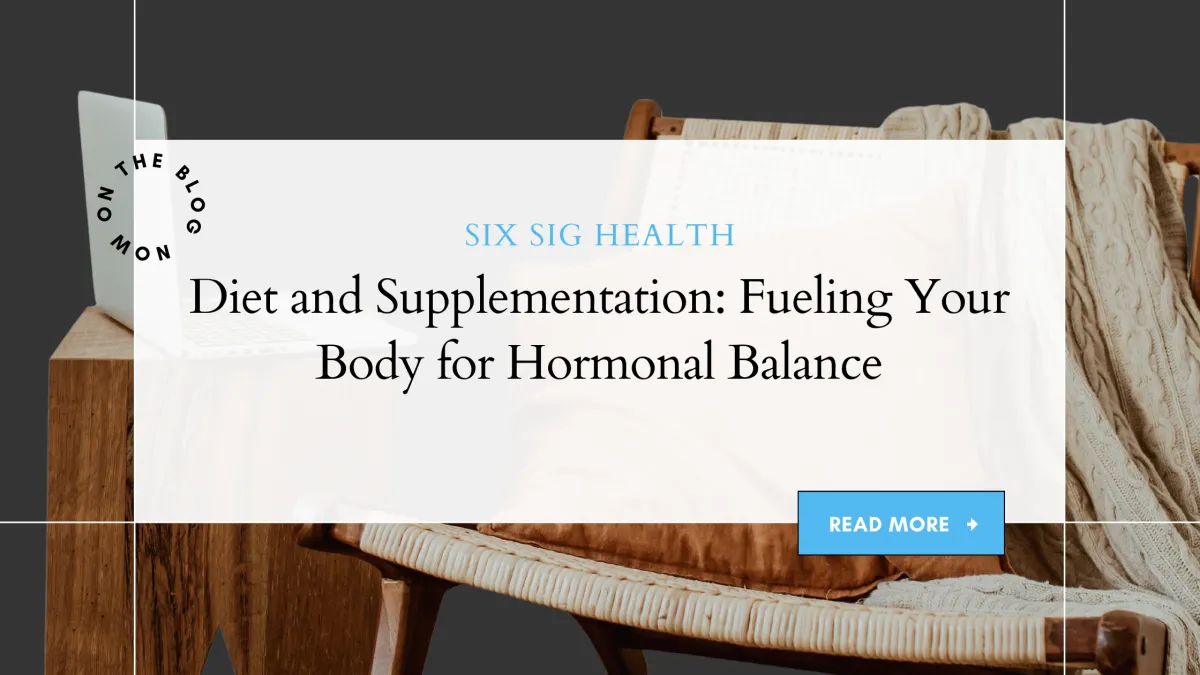
Diet and Supplementation: Fueling Your Body for Hormonal Balance
“Every time you eat or drink, you are either feeding disease or fighting it.” – Heather Morgan
Introduction:
Food as a Hormonal Regulator
Your diet isn’t just about calories—it’s about hormone optimization. The right foods and supplements can balance your hormones, enhance metabolism, and promote fat loss. By analyzing your Hormone Key, genetic test results, and bloodwork, you can create a customized nutrition strategy tailored to your body’s needs.

Best Diet Strategies for Hormonal Imbalances
1. Insulin Sensitivity (Back & Muffin Top Fat)
Focus on low-glycemic index foods (quinoa, sweet potatoes, leafy greens).
Increase healthy fats and protein to stabilize blood sugar levels.
Avoid processed sugars and refined carbohydrates.
2. High Cortisol (Belly Fat & Chronic Stress)
Consume magnesium-rich foods (dark chocolate, almonds, spinach) to lower stress levels.
Limit caffeine and alcohol, which spike cortisol.
Increase adaptogenic herbs like ashwagandha and rhodiola.
3. Low Testosterone (Pectoral & Triceps Fat)
Eat zinc-rich foods (oysters, beef, pumpkin seeds) to boost testosterone.
Increase healthy fats (avocados, eggs, grass-fed butter) for hormone synthesis.
Ensure adequate vitamin D through food or supplementation.
4. Estrogen Dominance (Thighs & Buttocks Fat)
Prioritize cruciferous vegetables (broccoli, kale, cauliflower) for estrogen detox.
Include fiber-rich foods to aid estrogen metabolism.
Supplement with DIM and calcium-D-glucarate for estrogen balance.
5. Growth Hormone Deficiency (Knees & Calves Fat)
Consume collagen-boosting foods (bone broth, citrus fruits, berries).
Increase amino acids and antioxidants to enhance growth hormone production.
Avoid late-night eating, as growth hormone is released during fasting states.
Best Supplements for Hormonal Optimization
Magnesium & Ashwagandha: Reduce cortisol and improve sleep.
Zinc & Vitamin D: Boost testosterone naturally.
DIM & Calcium-D-Glucarate: Aid estrogen metabolism.
Berberine & Alpha-Lipoic Acid: Improve insulin sensitivity.
Customizing Your Diet & Supplement Plan
Run a Six Sigma Health Genetic Test to identify your nutritional needs.
Perform a blood panel to detect deficiencies and imbalances.
Adjust your macronutrient intake based on your results.
Next Steps
By aligning your diet and supplements with your hormone profile, you can achieve sustainable fat loss, energy improvements, and metabolic efficiency.
Stay tuned for the next post, where we’ll explore lifestyle strategies for long-term hormonal health.
Link to Next Post:
Support your nutrition with lifestyle habits in Lifestyle Strategies for Long-Term Hormonal Health
Link to Related Posts:
Match your diet with the right workouts in Exercise Strategies for Hormonal Balance
Customize your entire approach in Creating a Personalized Hormone-Balancing Plan
